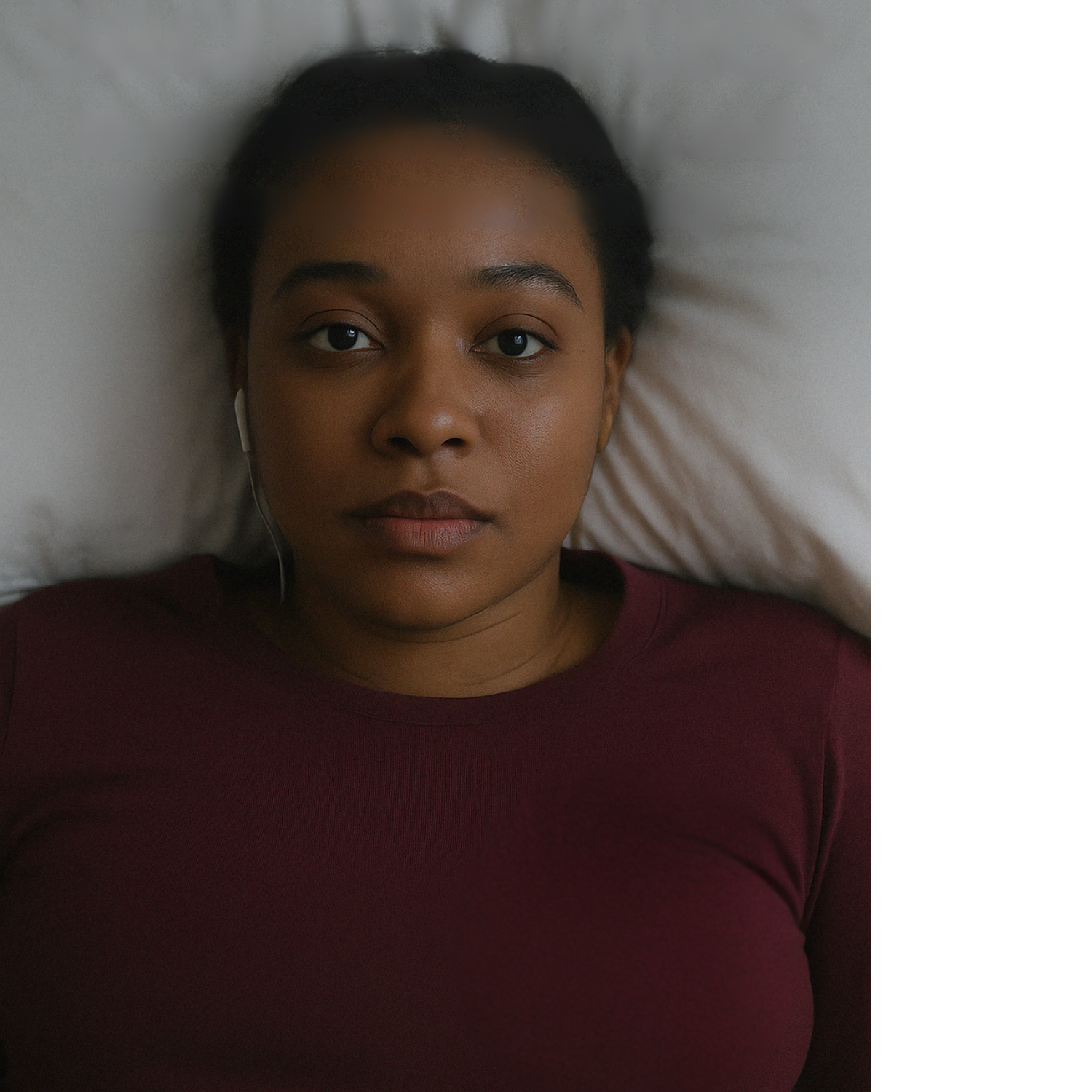
There’s a moment, long after the congratulations fade, when a new mother is left alone in the quiet, holding a baby in one hand and her unraveling emotions in the other. For too many Black women, this is the unseen reality of postpartum. Not the curated snapshots or the pastel baby nurseries. But the part where the exhaustion becomes emotional… and the sadness? It settles in like fog.
This is what we don’t talk about enough: postpartum mental health.
And it’s time we brought the conversation front and center.
Listen to the Podcast
The Weight Behind the Smile
Let’s start with the facts.
- 1 in 7 women experiences postpartum depression (PPD).
- Black women are less likely to be diagnosed, supported, or treated.
- And when we do reach out? We’re often told to “be strong” or that it’s just part of being a mother.
The result? Countless Black women are suffering in silence, overwhelmed by:
- Sadness they can’t explain
- Guilt for not feeling “grateful” enough
- Detachment from their baby
- Fear of being judged as “unfit”
We carry it all. And then we bury it.
Why Postpartum Depression in Black Women Often Goes Untreated
There are real barriers that keep us from accessing mental health care:
1. Medical Mistrust and Bias
Studies show that healthcare providers are less likely to recognize depression in Black women. We are often seen as strong, resilient, and emotionally stoic—even when we’re breaking.
2. Lack of Culturally Competent Providers
Black mothers are more likely to feel misunderstood by therapists who don’t share their cultural background or lived experience. This disconnect makes it harder to build trust or open up.
3. Stigma and Shame
In many Black communities, mental health is still taboo. Seeking therapy may be seen as weakness, or worse—unnecessary.
4. Fear of Being Reported
Some mothers avoid speaking up about their mental health out of fear that their pain will be weaponized against them. There is a real concern that emotional honesty may lead to involvement by child protective services or social judgment.
Trauma and Grief: The Other Side of Postpartum
Postpartum mental health challenges aren’t just about depression. Many Black women are dealing with trauma and grief layered onto the experience of new motherhood.
That grief can come from:
- A traumatic birth experience
- Being ignored or mistreated during labor
- Losing autonomy in the delivery room
- The loss of a previous pregnancy
- Or the deep, spiritual loss of the self they used to know
This trauma doesn’t disappear when the baby arrives. It lingers, often unacknowledged, and makes healing harder.
The Strong Black Woman Myth is Hurting Us
We’re expected to carry generations on our backs, smiling.
Expected to raise children, hold down jobs, and nurture everyone but ourselves.
But what happens when we need nurturing?
The myth of the strong Black woman is powerful… and toxic. It teaches us that we can’t fall apart. That we shouldn’t ask for help. That we’re somehow built to endure more pain than anyone else.
It’s a lie.
And believing it is costing us our wellness—and sometimes, our lives.
What Healing Can Look Like
Healing from postpartum depression or trauma is not linear. But it is possible. And it starts with permission.
You are allowed to:
- Rest
- Speak up
- Say “I’m not okay”
- Ask for help
- Change providers
- Choose yourself
Here are some real-world strategies Black mothers can use to begin their healing journey:
Find a culturally competent therapist
Seek out Black women therapists or support groups who understand your lived experience. Sites like Therapy for Black Girls and Open Path Collective are great starting points.
Name your emotions without shame
Use journaling, voice notes, or daily check-ins to give your feelings language. Healing begins with honesty.
Ask your doctor to screen for postpartum depression
And if they don’t take you seriously, advocate. Or find a provider who will.
Build or join a Sacred Circle
Whether virtual or in person, surround yourself with other Black women who are also in the journey. Community is medicine.
Creating Sacred Circles of Support
In African traditions, circles were sacred spaces for storytelling, healing, and connection. In today’s context, they can be support groups, mom groups, or even just that one friend you can cry with on the phone at midnight.
We need these circles.
We need safe places to fall apart without judgment.
We also need to normalize the need for them.
Healing isn’t meant to happen in isolation.
To the Black Mother Still Healing…
If you’re reading this in the thick of it—exhausted, scared, or simply feeling “off”—please know:
- You are not alone.
- You are not broken.
- You are not failing.
You are navigating one of the most sacred, complex transitions a person can experience.
And you deserve grace.
You deserve community.
You deserve time.
You deserve to feel seen, not just as a mother, but as a whole person.
Your Healing Is Sacred, Too
Black maternal health isn’t just about the physical.
It’s about the emotional. The mental. The spiritual.
And healing is possible, not just through medication or therapy—but through love, truth-telling, community, and rest.
If you’re in the postpartum period, or years out but still feeling the weight—you’re not behind. You’re not alone.
You’re exactly where you need to be to begin healing.
Want to go deeper?
🎧 Listen to the full podcast episode:
“Sacred Circles: Mental Health, Healing, and the Postpartum Journey”
Now playing on the Rooted Will, Rising Advocate Podcast.
And explore more tools, articles, and healing resources at
🌿 MahoganySpeaksToYou.com